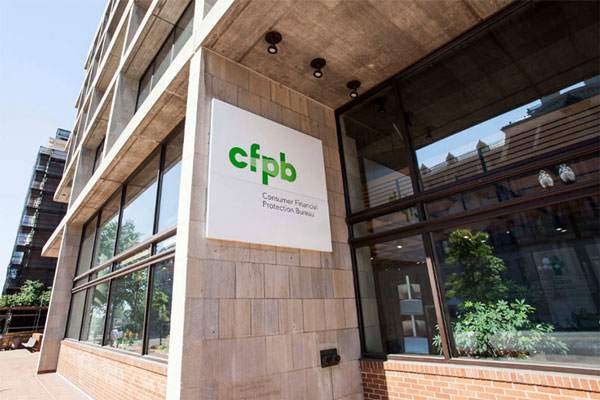The Consumer Financial Protection Bureau (CFPB) is a regulatory organization responsible for monitoring the many types of financial goods and services made available to consumers. The CFPB comprises a few different divisions, and all these departments collaborate to keep customers safe and informed about financing options.
Consumer Financial Protection Bureau (CFPB): Complete Overview
As a result of the Dodd-Frank Wall Street Reform and Consumer Protection Act of 2010, the CFPB was established.
The Director of the CFPB is a Presidential appointee who serves a five-year term. Furthermore, the bureau receives advice from the Consumer Advisory Council, made up of at least six individuals chosen by the presidents of different Federal Reserve districts.
The Consumer Financial Protection Bureau (CFPB) aids in the smooth operation of the consumer finance industry by establishing and enforcing regulatory standards and giving individuals greater agency in their own financial decisions. The mission of the CFPB is to protect consumers from abusive and inappropriate financial practices via education and information, supervision of financial institutions, and research on the relationship between consumers and financial markets.
Decision Made by the Supreme Court
The United States Supreme Court (SCOTUS) decided on June 29, 2020, by a vote of 5 to 4, that the structure of the CFPB breaches the separation-of-powers clause of the Constitution. This conclusion was reached because the statute ordered the president to only dismiss the CFPB director for "cause," which is defined as "inefficiency, failing to perform a duty, or misconduct in office."
The Court ruled that the President may fire the CFPB director at any time. The judgment permits the CFPB to continue operating but acknowledges that its direction rests with the executive branch.
Several Important Factors to Take into Account
The Consumer Financial Protection Bureau's overarching mission is to promote healthy growth in the consumer finance industry. As a result, customers may see their financial transactions' true costs and dangers and learn to spot fraudulent or otherwise harmful companies. The CFPB divides this overarching purpose into four more manageable objectives.
The primary objective is to safeguard customers from potential monetary loss and to encourage sound financial decision-making. The second objective is to give customers the means to improve their financial situations. The third objective is to provide insights based on data-driven analysis to policymakers and the general public so that they may better guide their decisions. The fourth and last objective is to increase the overall effect of the CFPB by making the most efficient use of its resources.
The Role of the Consumer Financial Protection Bureau

Along with these overarching aims, the CFPB also offers advice on personal finance matters. College-bound students and their families can benefit from the financial resources available in the form of student finance guides. With the help of these guides, individuals may examine and evaluate the many types of financial aid that exist.
The Consumer Financial Protection Bureau (CFPB) offers guidance on saving for retirement to people who are far beyond college age. This organization can serve if you need assistance with your Social Security payments or some retirement planning advice.
The CFPB can now assist consumers with homeownership. The CFPB 's website has a loan comparison tool, a monthly payment calculator, and information on interest rates. The CFPB offers guidance to homeowners experiencing financial difficulties.
How the CFPB help to safeguard my finances?

The Wall Street Reform and Consumer Protection Act provided CFPB with a wealth of resources to advance free and healthy markets for consumers and businesses alike. Three categories characterize the CFPB's work:
Educate
Consumers are provided with access to the resources they need to make informed financial decisions thanks to Educate CFPB's efforts to promote financial literacy.
The capacity of customers to properly analyze the prices, advantages, and dangers of various products and to utilize this knowledge to select the product that best suits their needs is essential to functioning in a fair, effective, and transparent market. Consumers may find it challenging to conduct informed product comparisons when faced with fine print and lengthy agreements.
Enforce
The Consumer Financial Protection Bureau (CFPB) is the law enforcement arm of the federal government charged with preventing and punishing unfair, misleading, or abusive business activities in the consumer finance sector.
No service provider, no matter how big or little should be allowed to base their operations on unjustly treating their customers. Customers are well-protected whether they engage with a bank or a non-bank financial institution, thanks to uniform laws in force across the industry.
Research
In addition to handling complaints, conducting research on consumer behavior, and keeping an eye on the financial markets for emerging threats, the Bureau also acts as an information clearinghouse for the general public.
Suppose the CFPB keeps an eye on financial institutions and analyzes how people react and engage with them. In that case, it can learn more about the risks that consumers face when interacting with different organizations and entities, and it can also get a better sense of the system's overall health.
Before the Wall Street Reform Act (LINK) was enacted, there was no central body with authority to set market-wide regulations or monitor the industry as a whole, and protecting consumers' financial interests was not a major concern. As a result, the system created an environment where no one was held adequately responsible for completing the work. The results of this framework became evident in the financial crisis of 2008 and its fallout.
Complaints to the Consumer Financial Protection Bureau
The CFPB has a public complaints mechanism as part of its mandate to safeguard customers. As a customer, you may take these measures.
- You can start the process by filing a complaint with the CFPB or another agency. To eliminate confusion regarding how the CFPB's complaint procedure works, the CFPB strongly recommends that you familiarize yourself with it in advance.
- When you file a complaint with the CFPB, it will be forwarded to the company involved and followed up with. Sometimes, the assistance of a different government department is ++required.
- The deadline for a response from the corporation is 15 days (or 60 days in exceptional circumstances). Company officials may get in touch with you in this capacity.
- After you file a complaint with the CFPB, it will be added to their database of consumer grievances along with a narrative of the subsequent events. Before publishing, any identifying information is erased.
- Once the firm answers, the CFPB will notify you so that you may study their response and submit feedback within 60 days.
The CFPB claims that Database for Consumer Complaints aids in its mission to "understand the financial industry and safeguard consumers."







